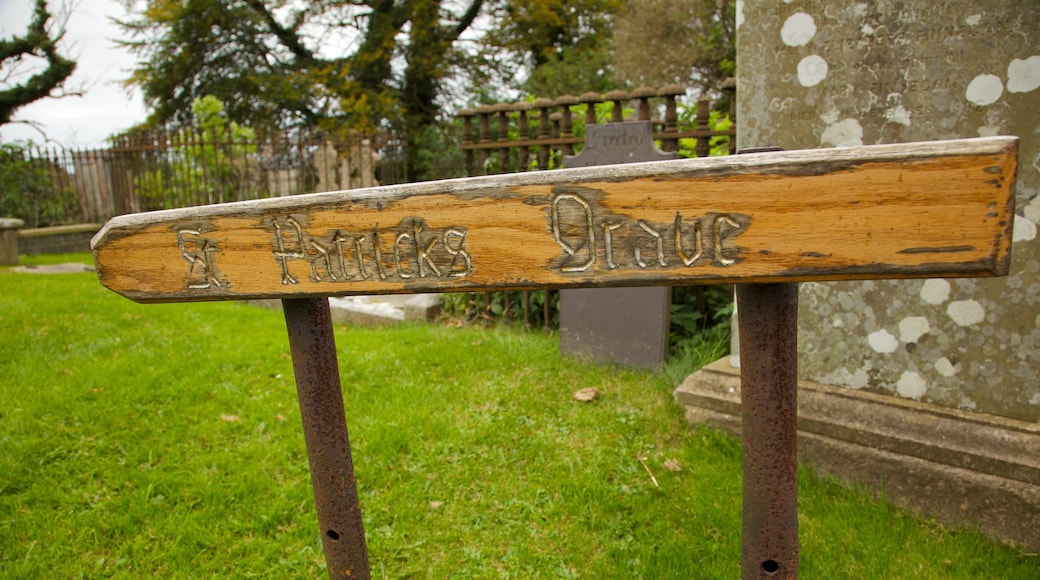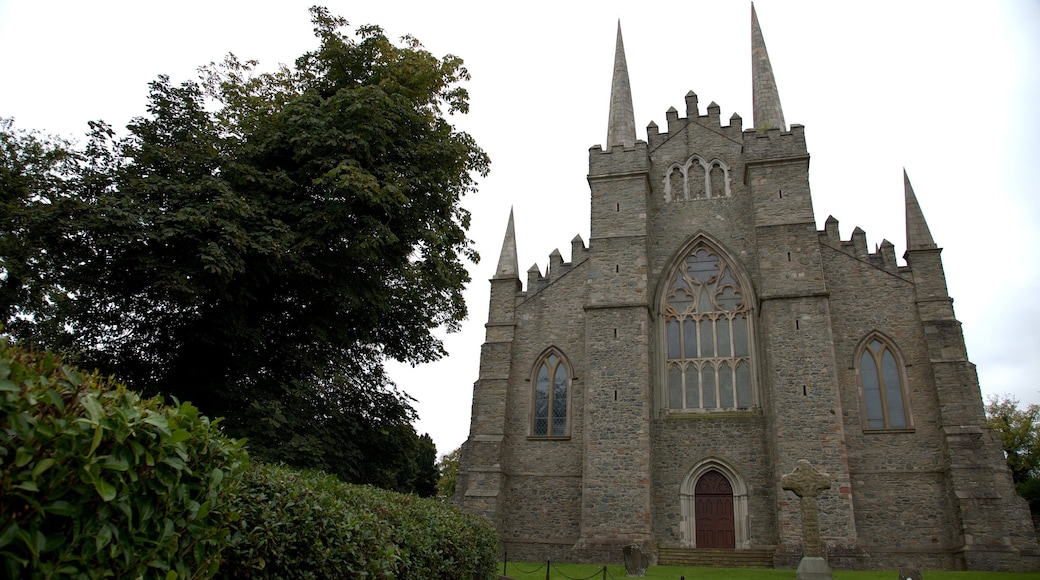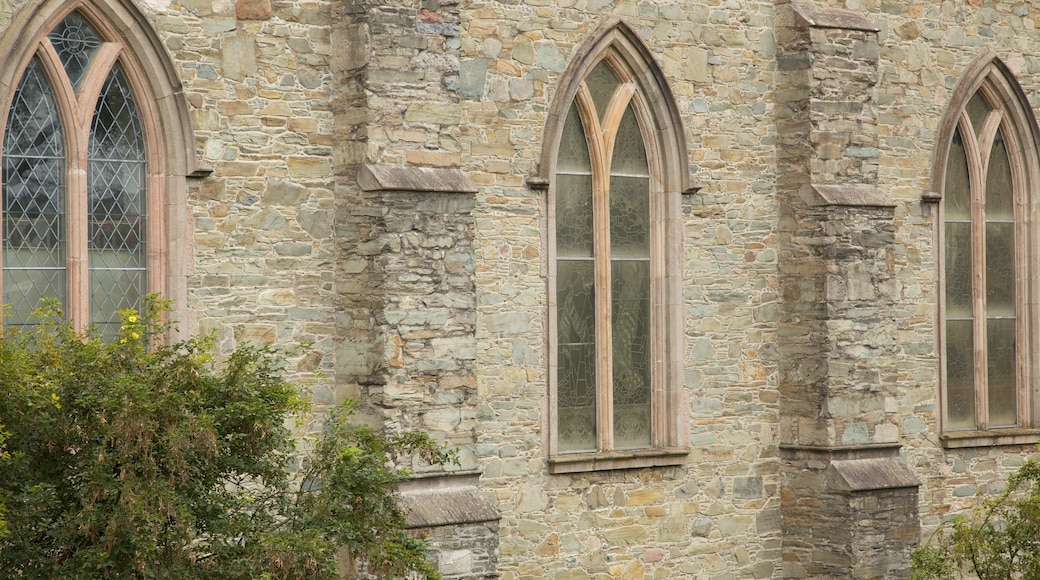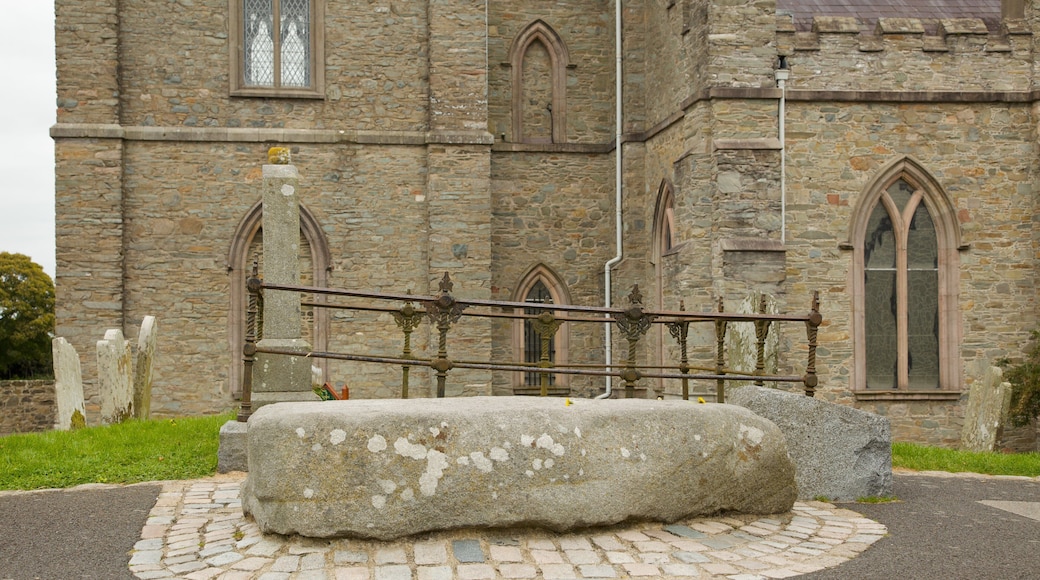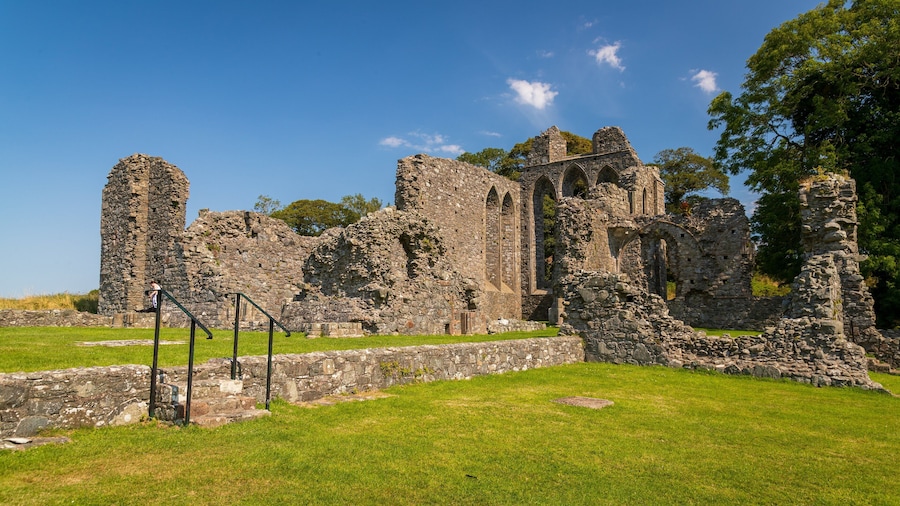Down Cathedral is one of the most popular tourist attractions in Northern Ireland as, according to legend, it is where St. Patrick is buried.
Located in the centre of Downpatrick in County Down, the Church of Ireland cathedral has been rebuilt numerous times over its eventful 1,600-year history. Early churches in the area were destroyed by the Vikings and the Norman cathedral and monasteries that replaced them were razed to the ground by Scottish invaders in 1316.
The rubble left behind was used to build a church finished in 1512 but, 30 years later, it too was destroyed following the Dissolution of the Monasteries. The building which stands in English Street today dates from the 18th and 19th centuries and has an interior installed in the 1980s.
Legend tells that St. Patrick died in Saul, where angels told his followers to place his body on a cart drawn by two untamed oxen. Wherever the beasts halted was to become the spot where the saint was to be buried – it is reputed that they stopped at the church on the hill of Down, now the site of Down Cathedral.
The cathedral, with its magnificent stained glass windows, box pews and beautiful organ case, is situated close to the Saint Patrick Centre and in the churchyard to the south lies a piece of Mourne granite bearing the inscription “Patric”. Marking the traditional site of St. Patrick’s grave, it was put there in 1900 by members of the Belfast Naturalists’ Field Club.
